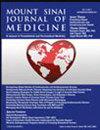Thyroid autoimmune disease.
引用次数: 20
Abstract
Autoimmune diseases are a group of disorders in which the immune system dysfunctions and attacks host tissues. Although the pathogenesis of autoimmune thyroid disease has not been elucidated, there are several factors that have been associated with the disorder. Factors include genetic predisposition, nutrient deficiencies, use of certain medications affecting thyroid function, and environmental factors including exposure to radiation, heavy metals, and chemical contaminants. Thyroid disorders are often treated with drug therapy, which often have serious side effects and do not necessarily treat the underlying condition leading to the thyroid dysfunction. In recent years there has been increased interest in herbs and supplements as individuals take more interest in their health and well being. For autoimmune disease, vitamin D supplementation is recommended as deficiency in this nutrient has been associated with the disorder. Additionally, it also modulates T cell response and inhibits Th1 cytokines. In cases of autoimmune hyperthyroid disorder, rosmarinic acid, selenium and iodide supplementation are recommended. For autoimmune hypothyroid disorder, blue flag (Iris versicolor) and guggul (Commiphora mukul), selenium and iodide supplementation are indicated. Each of these supplements plays a specific role in restoring normal thyroid function. Further, rosmarinic acid found in plants such as rosemary (Rosmarinus officinalis), bugleweed (Lycopus virginicus), and lemon balm (Melissa officinalis) also calms excess T cell activity and pro inflammatory cytokine release. The use of these combinations of supplements should restore thyroid hormone homeostasis in autoimmune thyroid disorders. Proper medical supervision is required to ensure these herbs and nutrients are used safely and potential adverse effects are avoided.甲状腺自身免疫性疾病。
自身免疫性疾病是免疫系统功能失调和攻击宿主组织的一组疾病。虽然自身免疫性甲状腺疾病的发病机制尚未阐明,但有几个因素与该疾病有关。因素包括遗传易感性、营养缺乏、使用影响甲状腺功能的某些药物,以及环境因素,包括暴露于辐射、重金属和化学污染物。甲状腺疾病通常用药物治疗,这通常有严重的副作用,不一定能治疗导致甲状腺功能障碍的潜在疾病。近年来,人们对草药和补品的兴趣越来越大,因为个人对自己的健康和福祉更感兴趣。对于自身免疫性疾病,建议补充维生素D,因为这种营养素的缺乏与疾病有关。此外,它还调节T细胞反应和抑制Th1细胞因子。在自身免疫性甲状腺功能亢进的情况下,建议补充迷迭香酸、硒和碘化物。对于自身免疫性甲状腺功能减退症,建议使用蓝旗(鸢尾花)和古古(鸢尾花)、硒和碘补充剂。每一种补充剂在恢复正常甲状腺功能方面都起着特定的作用。此外,在迷迭香(Rosmarinus officinalis)、大叶草(Lycopus virginicus)和柠檬香草(Melissa officinalis)等植物中发现的迷迭香酸也能抑制过量的T细胞活性和促炎细胞因子的释放。使用这些补充剂的组合应该恢复自身免疫性甲状腺疾病的甲状腺激素稳态。需要适当的医疗监督,以确保这些草药和营养素的安全使用,并避免潜在的不利影响。
本文章由计算机程序翻译,如有差异,请以英文原文为准。
求助全文
约1分钟内获得全文
求助全文

 求助内容:
求助内容: 应助结果提醒方式:
应助结果提醒方式:


